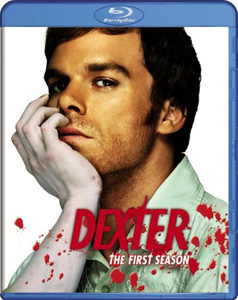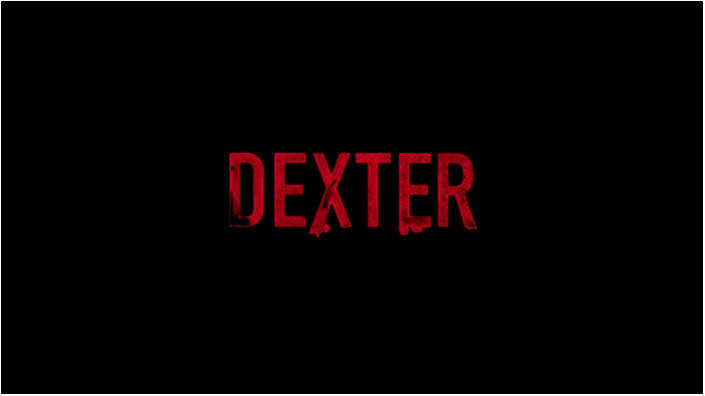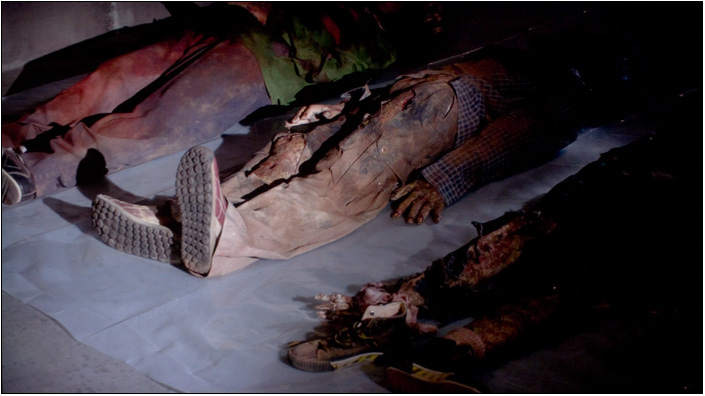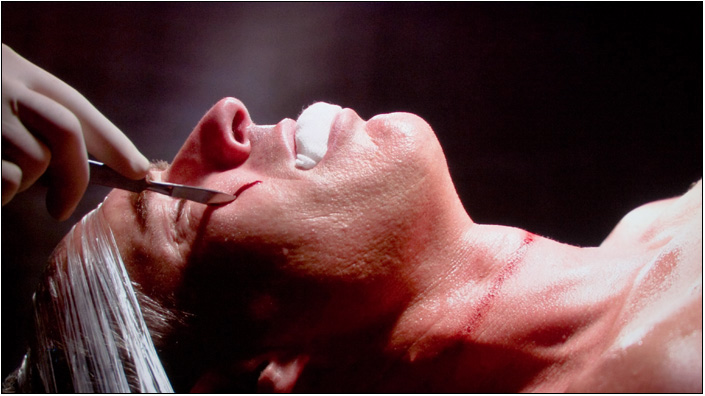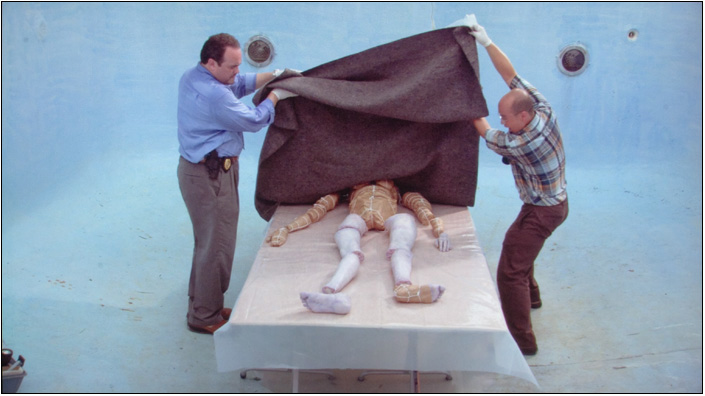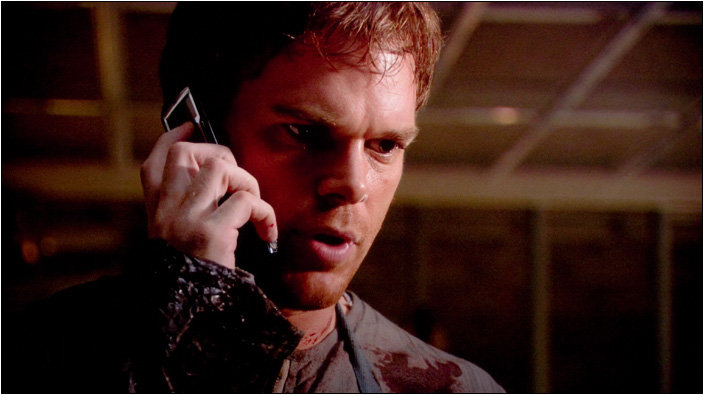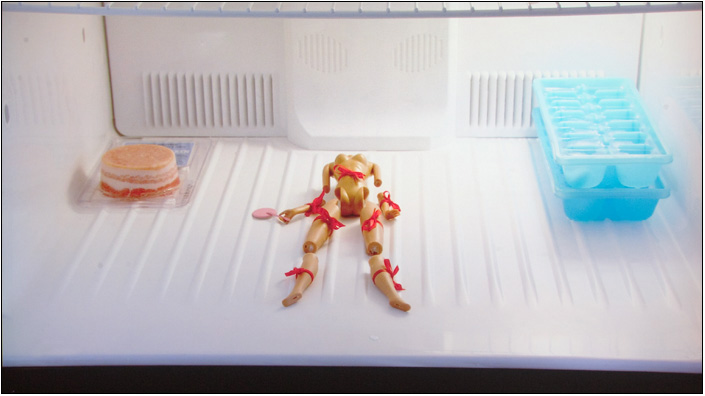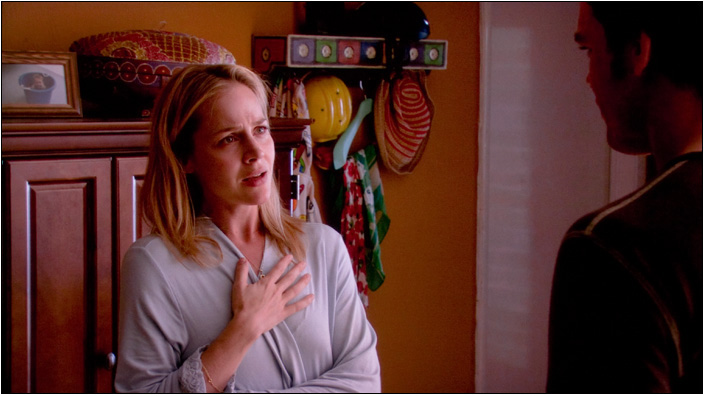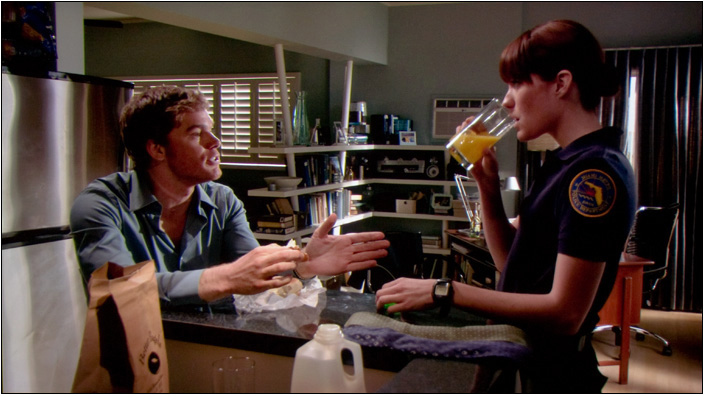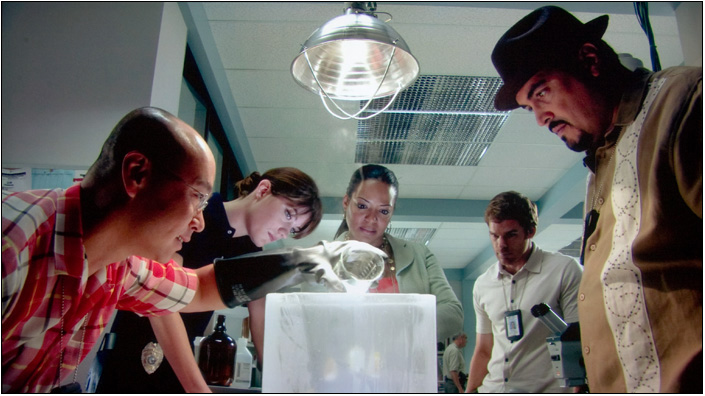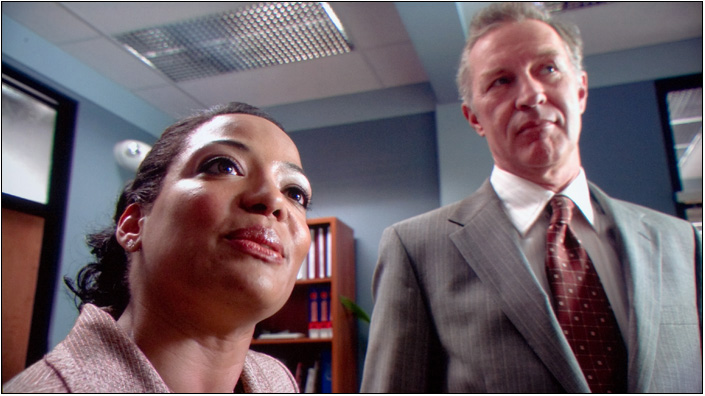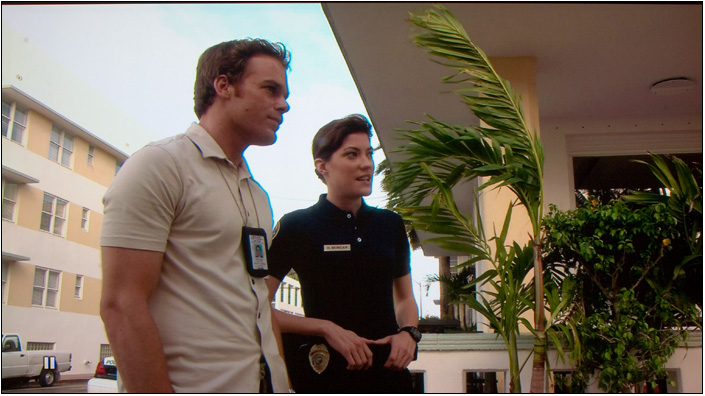Review by Leonard Norwitz
Studio:
Theatrical: Showtime Entertainment
Blu-ray: Paramount/CBS Home Entertainment
Disc:
Region: 'A'
Runtime: 10 hrs.
Chapters: 12
Size: 50 GB
Case: Standard Blu-ray case, w/ flip-page
Release date: January 6th, 2009
Video:
Aspect ratio: 1.78:1
Resolution: 1080p
Video codec: AVC
Audio:
English Dolby TrueHD 5.1. Spanish Dolby Digital 2.0
Subtitles:
English SDH
Extras:
• Audio Commentaries for episodes:
• BD-Live: The Academy of Blood – A Killer Curse
• BD-Live: Witnessed in Blood – A True Murder Investigation
• BD-Live: First Episode of Dexter, Season 3
• BD-Live: First 2 Episodes of United States of Tara
The Film:
Dexter is not the first Showtime series to come to Blu-ray.
That honor went to Weeds, which has already seen three
seasons on high def video. The Tudors was announced in more
than one country but, as far as I know, is still on hold
everywhere. Both Weeds and Dexter signaled a departure of
sorts in that they both began their run on high definition
video at the beginning and not with the most recent season.
Suits me fine, since I am not a Showtime subscriber, but
have wanted a chance to watch this particular series.
I can see the temptation for Michael C. Hall to channel John
Malkovich: as Clint Eastwood's Line of Fire nemesis, Mitch
Leary is a ruthless psychopath who snorts his nose after a
killing in a vague registration of feigned contempt. We hear
an echo of Leary in the opening episode of Dexter as the
title character has his helpless victim at his mercy. Hall
is letting us know something about the extent of Dexter's
sociopathy, his disassociation from feeling, about which he
confides to us a great deal in the following episodes. All
the same, I was relieved when Hall backed off on his
Malkovich impersonation. Dexter is a self-admitted sociopath
but, in that rarefied place where distinctions are made for
such things, he is no Leary. Exactly who and what Dexter is
becomes our dilemma – and an intriguing, Escher-like moral
problem it is.
By day, Dexter Morgan is a blood-spatter forensic analyst
for the Miami Metro Police. By night, he "takes out the
trash" as he refers to his decade long obsession as a
vigilante serial killer. Dexter's fascination with the
processes of death and killing began early but he's found a
way to live with his peculiarities. He sees himself as an
thirty-something adopted child with special needs. In one of
Dexter's many flashbacks we find him in a close-up
discussion with his adoptive father, a straight-arrow Miami
cop (James Remar), about the morality of killing domestic
animals and how such a propensity could lead to targets
higher up the food chain if not checked.
Dexter is quick to point out the downside to his special
gifts: he truly is disconnected from feeling. His sister,
Debra (Jennifer Carpenter) is a competitive, foul-mouthed
undercover vice cop who longs to be homicide detective. Even
while Dexter helps her in her work with his "hunches" about
her various investigations, he goes to some pains to keep
the truth about himself, even from her.
It is most important, if one is to pass among cops, to have
a girlfriend. Besides the possibility of an accidental
uncovering of his true nature in any relationship, he feels
certain to be embarrassed for the lack of feeling which any
self-respecting woman would notice. Thus: Rita (Julie Benz),
a single mom with two really nice kids, recently having left
a life as a victim of domestic violence. Her not quite
ex-husband (Mark Pellegrino) is about to be released from
prison, which augers badly for this vulnerable little
family. The damage Rita suffered at his hands makes it
impossible for her to connect intimately with a man, though
(different from Dex) she longs to. She's the ideal
girlfriend for our hero since intimacy is conveniently held
at arm's length.
Like many men without his peculiar talent, Dexter gives a
pretty good imitation of swimming along in the mainstream,
thanks largely to the teachings of his ever-watchful father.
Once, when Dex was about ten, dad noticed that the boy was
not smiling for an informal family photo. "Why should I
smile if I don't feel like it?" the boy asks. "Because it
would make your mother happy. Because it's what normal
people do. It's what people do to fit in." (Men: If you're
interested: there is wisdom in Harry's observations.) In a
season of darkly funny moments, few are more hysterical than
when Dexter interrupts his death dealing slice to interview
a married couple about how two such unfeeling people could
have an apparently successful relationship.
Dexter is seen by his colleagues as having remarkable
insights into both the killers and the killing of the
victims. Near the start of the season opener, Dexter meets
the leavings of the man who will become his personal and
professional obsession for episodes to come: a body, sawed
and wrapped neatly into several sections without a trace of
blood. By the end of the second episode the killer (to whom
we have not yet been introduced) leaves his calling card in
Dexter's home refrigerator. Dexter is ecstatic about the
challenge. He's just twisted enough to understand this new
series of killings in terms of a dialogue between the killer
and himself. Dexter sees in this new adversary, someone like
himself: a blood brother, as it were.
The series is relentlessly fascinating, especially in how it
slowly and insidiously reveals its main character and his
antagonist. But some of what goes on at Miami Metro is
routine, even a little clumsy. The police seem more
interested in exploiting political infighting than
investigating murders – so much so that they miss a not
unimportant clue: one of the bodies they turn up had been
completely infused with salt water, a finding which would
have indicated where it had been lying in state before they
found it. Funny how they overlooked that.
A final note about the cast, all of whom are spot on,
whatever we may think of the characters themselves. A
special nod, then, to James Remar who, noted for psychos in
such movies as Cotton Club and 48 Hrs and his first
important screen role as the all-too-ready-to-rumble Ajax,
he comes to Dexter with just enough edge to play Dexter's
understanding adoptive father – a cop who always plays by
the rules – well, nearly always. And another nod to Julie
Benz as Rita. Julie finds not only Rita's vulnerability, but
also a growing strength, if not a little reckless at times.
You may remember Julie from both the Buffy and Angel TV
series as Darla. Passed over for the title character in
favor of Sarah Michelle, Julie made her pilot episode
character memorable enough to have her brought back again
and again (you get to do that with vampires!) right through
to the end.
Image:
6~9/8
The first number indicates a relative level of excellence
compared to other Blu-ray video discs on a ten-point scale.
The second number places this image along the full range of
DVD and Blu-ray discs.
Shot on HD video, the image demonstrates what's good and
less good about the medium. I don't really know how to judge
its strange quirks are the result of how it was shot vs. how
it was transferred. The high contrast, lurid, saturated
color of the first episode gives way to a more natural color
palette for the remainder of the season, though contrast is
still higher than we would find with film.
There is an immediacy to HD video that is hard to beat. When
compressed onto Blu-ray, some of that immediacy is exchanged
for processing artifacts, however subtle. On the other hand,
some things perceived as problems are an intended effect of
the photographic medium (as in Christopher Doyle's work on
Chungking Express.) There are scenes in Dexter, especially
in the later episodes where the lighting, color, and
contrast is just so, that display remarkable sharpness and
resolution. But in more problematic backlit, low light, or
shadowy scenes, the image can get dicey: noticeable, if not
disturbing, amounts of noise and vague contrast make us
wonder if what we see is actually intended.
I believe that other critics are more watchful in this
regard than I am unless something leaps off the screen (as
it does on occasion here in episodes 2 and 12). One example
of a particularly troublesome spot lasts about ten seconds
in the second episode, "Crocodile" (see sample - last
capture.) This error isn't quite
as glaring anywhere else, but it does reappear from time to
time when an actor or strong edge stands against a colorless
sky. We see it again to a lesser extent in the final episode
as Dexter searches for the cargo container.
Blue halo anomaly (CLICK to ENLARGE)
Audio & Music:
8/8
Starting with its moody, spicy rhythms over the credits
Daniel Licht sets the stage for sex and blood. Whenever this
noirish music is projected into the surrounds with its warm,
pulsing caress, we know that sex and death are not far away.
I say "sex" but that is usually implied rather than
portrayed. The music provides a kind of transitional cover
on the way to the latest homicide scene or Dexter's more
graphic forensic work. Dialogue is perfectly staged and
focused in the center, while Dexter's inner monologue is
just enough larger to distinguish it from the rest. This is
a show without car chases, explosions and precious little
gunfire, so effects are largely atmospheric and ambient.
They seemed almost "invisible" until I turned off the
surrounds and discovered what I would be missing.
Operations:
6
There's very little to the menu page, though what's there is
a piece of cake to navigate. Extra Features appear on disc 2
(a commentary) and 3 (a commentary and access to BD –Live).
Curiously, each episode has 7 chapters but there is no menu
access.
Extras:
2
Few TV series cry out for supporting features (Was that a
real goldfish? How about all those taxidermical items in
Neil Perry's mobile home? How does Michael Hall think
through and distinguish his narration from his on-screen
dialogue?) There are two commentaries plus whatever treats
you'll find on BD-Live. But conspicuously absent from the
on-disc extras are its star, Michael C. Hall, and series
creator, writer and ex-producer, James Manos, Jr., though
the former makes his presence felt in a podcast on BD-Live.
The first commentary comes at the halfway point in the
season, with four of the important supporting actors
(Jennifer Carpenter, David Zayas, Lauren Valez & Erik King.)
However, if you aren't up to speed with the current season
(3), as I am not, I'd recommend against this commentary
altogether since one of the actors carelessly tells us more
than we want to know about the fate of certain characters.
(Isn't this against some sort of unwritten code!)
The second commentary accompanies the final episode, and a
bloody good one it is, which is fortunate seeing as how it
subs for we get in the way of a making-of piece. Three of
its producers: Sara Colleton, Clyde Phillips & Daniel
Cerrone – Cerrone & Phillips doubling as writers – discuss
the nuts and bolts of putting the series together in the
context of the final episode. Naturally, the writing and the
casting are of most importance, especially in the selection
of its lead, who pretty much carries the show. They also
touch on production design and sets (shot mostly in L.A.
sometimes using still shots taken in Miami as a backdrop),
photography (color palette, perspective distortion) and
music. There's still the occasional remark about what will
happen in Seasons 2 and 3, but not as egregiously.
|
 |
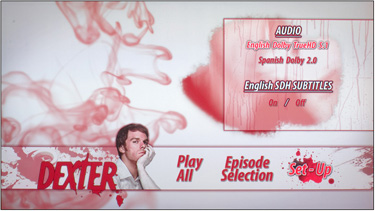 |
|
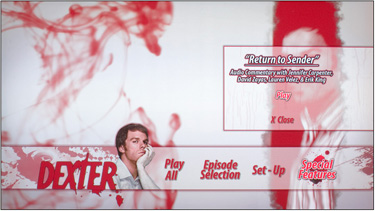 |
 |
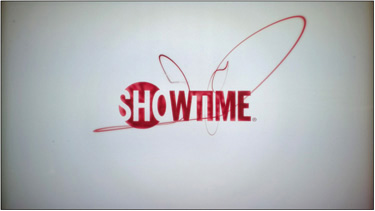 |
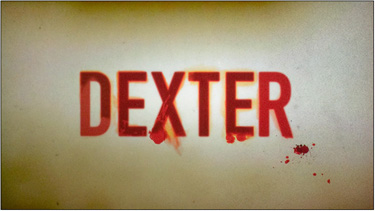 |
Bottom line:
7
This new Blu-ray sports an image of inconsistent quality –
certainly nothing you want to take home to mother. But,
then, the same is true for the series: Dexter is a show you
want to savor in the privacy of your own dark ego. Or, id.
The audio is very good, but despite its lean extra features,
Dexter gets a recommended vote from this appreciative
viewer.
Leonard Norwitz
December 27th, 2008
![]()
![]()

![]()
![]()
![]()
![]()

![]()
![]()
